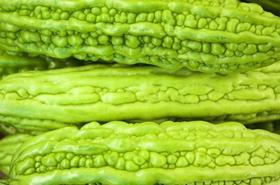
Indigenous vegetables could present the answer to nutrient-poor diets while sustaining local economies, according to Dr Dyno Keatinge, director general of the World Vegetable Centre (AVRDC).
During a keynote presentation at the first International Symposium on Indigenous Vegetables, Keatinge will discuss the benefits of indigenous vegetables not only for their underutilisation, but also for their nutritional elements.
“While tomatoes and cabbage certainly make a contribution to health, there are hundreds of less well-known vegetables packed with vitamins and minerals, such as moringa leaves, bitter melon, leafy nightshade and amaranth, to name just a few, that can add much-needed nutritional diversity to diets,” said Keatinge in a company statement.
“We yet know little about sustainable production, agronomy and post-harvest management for many of these useful species and quality seed availability remains an important constraint.'
Keatinge has recommended increasing research into the nutritional qualities of indigenous vegetables, particularly in the South and Central Pacific regions, where malnutrition and overconsumption have led to an increase in heart disease, obesity and type 2 diabetes.
“Hundreds of these nutrient-dense vegetable species could enrich diets well beyond the areas where they are typically grown, if quality seed could be obtained and suitable agronomic and postharvest handling practices were applied,” said Keatinge.
AVRDC will host the first International Symposium on Indigenous vegetables at the International Horticulture Conference in Brisbane, from 20-22 August.



